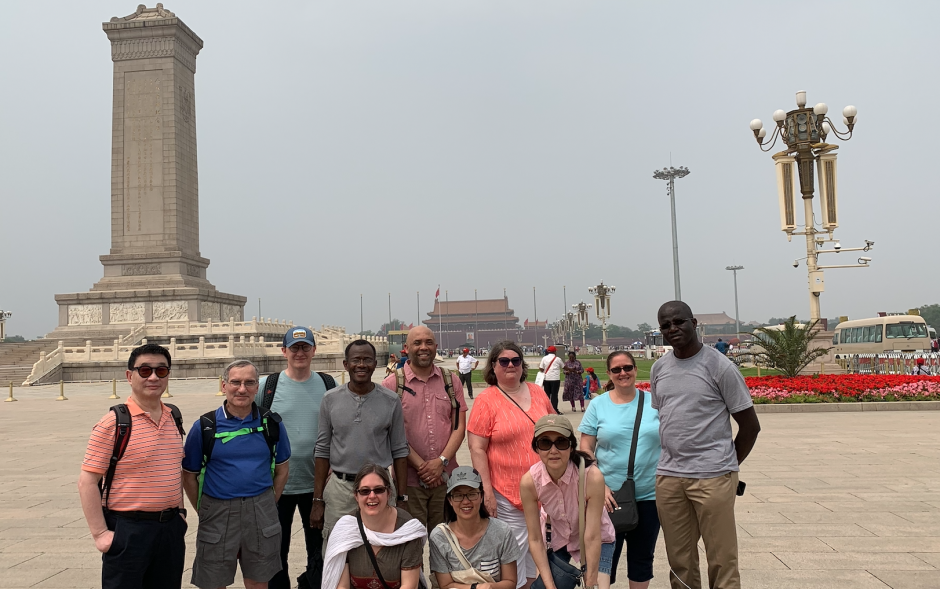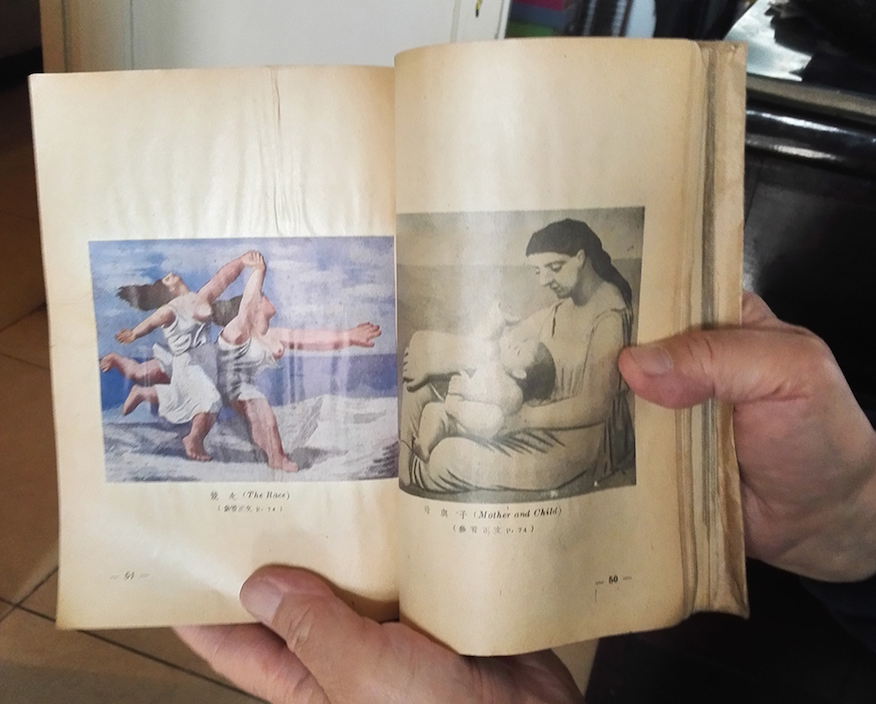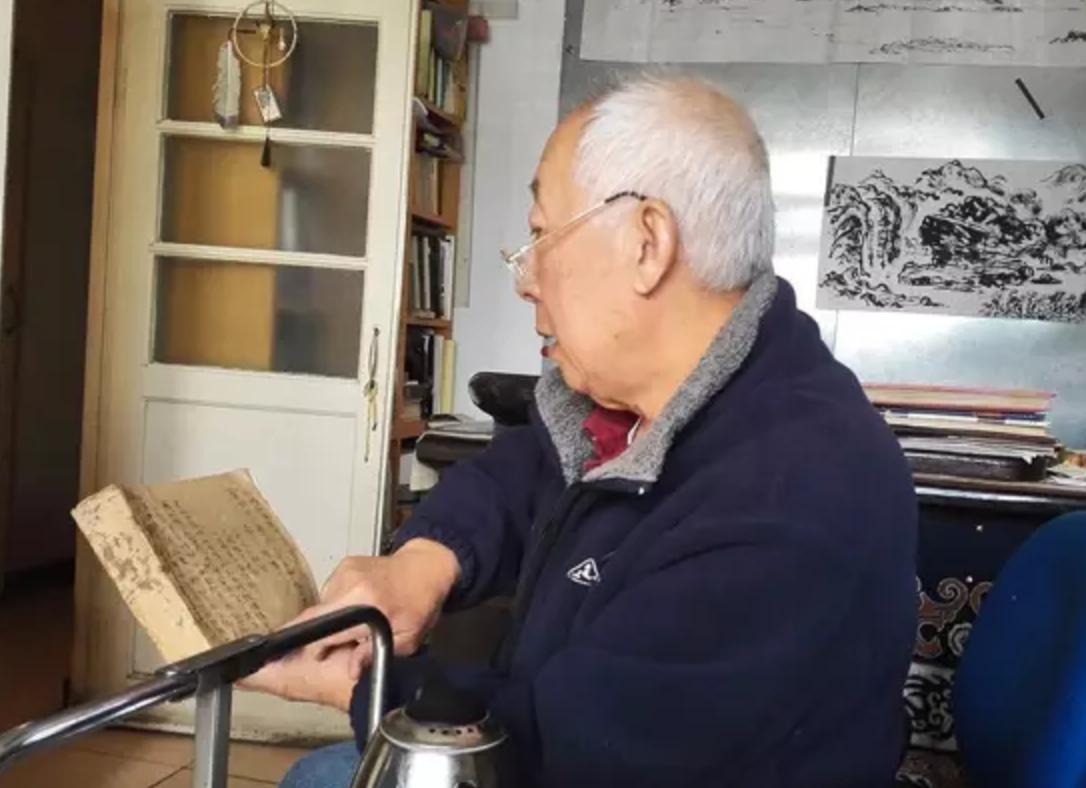The self-made books of 60 years ago
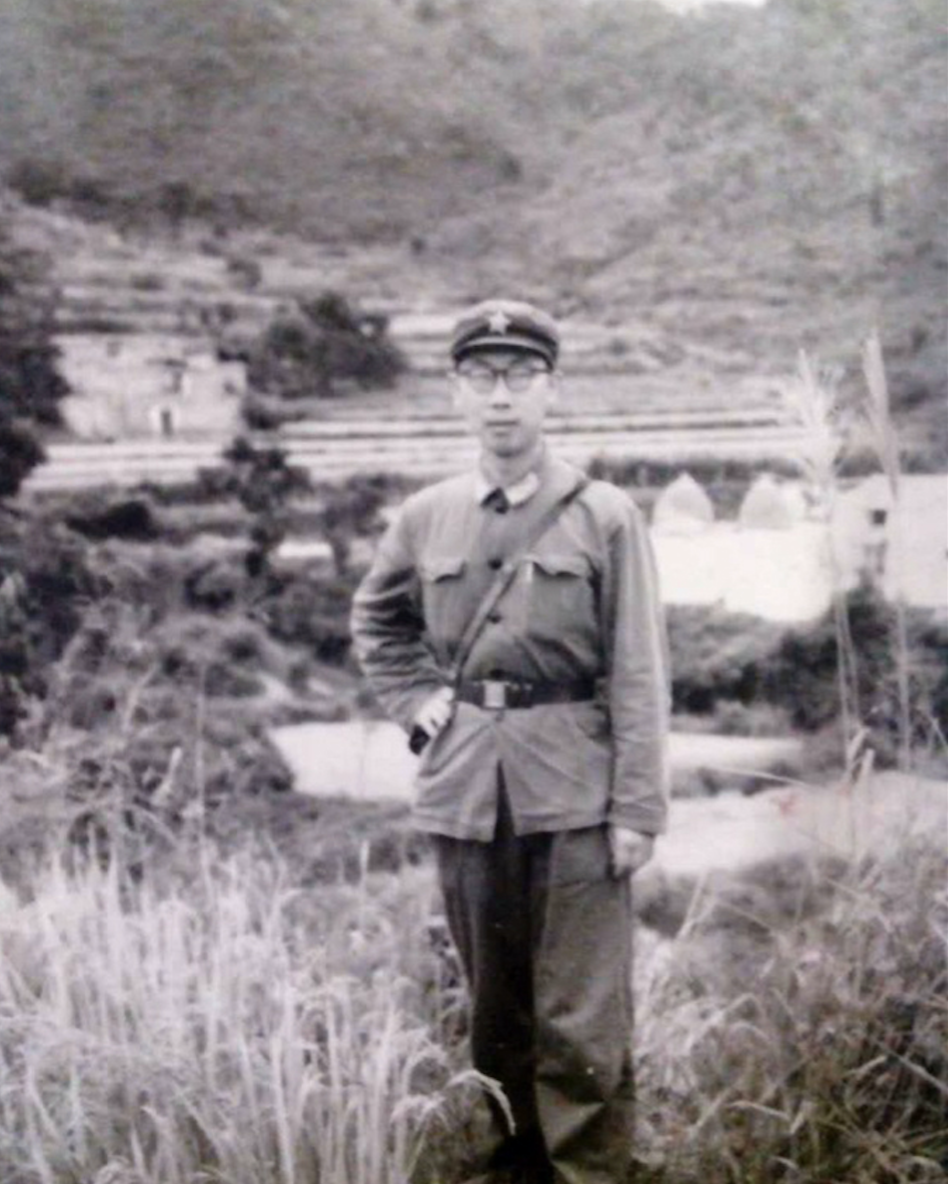 These books are my collections from high school before 1963. The high school affiliated to Beijing Foreign Language School had been moved from Weigongcun to the original site of the School of Education and Administration at Hepingmen. The Liu Li Chang Street was right on the south, where there was a variety of stores selling anything from calligraphy, antiques, writing brushes and dry-ink pads, to books, especially old used books.
These books are my collections from high school before 1963. The high school affiliated to Beijing Foreign Language School had been moved from Weigongcun to the original site of the School of Education and Administration at Hepingmen. The Liu Li Chang Street was right on the south, where there was a variety of stores selling anything from calligraphy, antiques, writing brushes and dry-ink pads, to books, especially old used books.
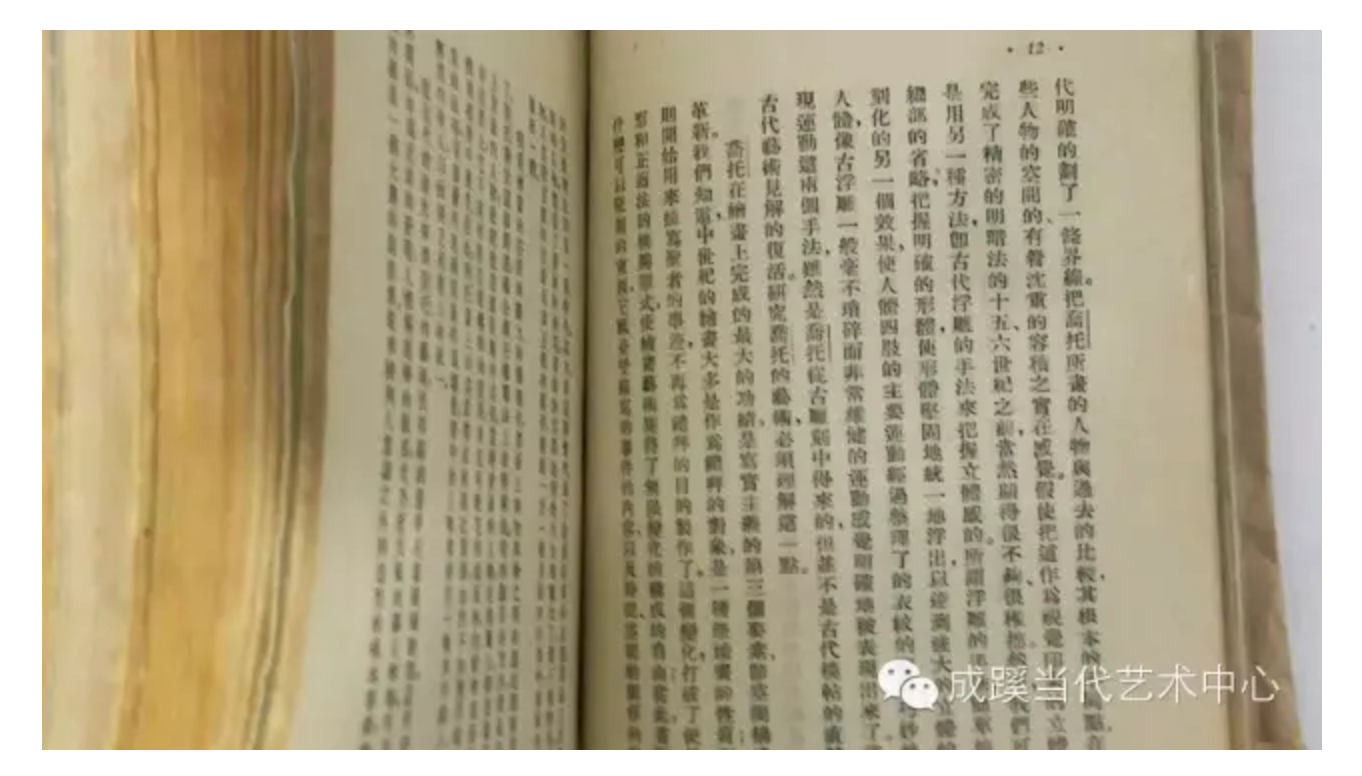 I used to stroll along the Liu Li Chang Street on Sundays, and Rongbaozhai was one of my favorite stores to look at ink paintings. But what I loved most was to read the books in the second-hand bookshop, where you could choose a book and stay there until the store was closed. The bookshop was quiet and peaceful. Young and energetic at that time, I din’t know what fatigue was and would crouch down when I felt tired standing up, and stand up again or sit on the floor when I felt tired squatting down. I needed no food or drink but a wonderful book, and would not leave until I finished reading as though a hungry wolf or tiger devouring its prey.
I used to stroll along the Liu Li Chang Street on Sundays, and Rongbaozhai was one of my favorite stores to look at ink paintings. But what I loved most was to read the books in the second-hand bookshop, where you could choose a book and stay there until the store was closed. The bookshop was quiet and peaceful. Young and energetic at that time, I din’t know what fatigue was and would crouch down when I felt tired standing up, and stand up again or sit on the floor when I felt tired squatting down. I needed no food or drink but a wonderful book, and would not leave until I finished reading as though a hungry wolf or tiger devouring its prey.
The shop assistant was also reading sometimes, not speaking unless spoken to. He would not disturb those reading the books; even when he spoke, he would do so in a gentle voice, as if the acts of selecting, reading and buying a book were sacred and divine. Only w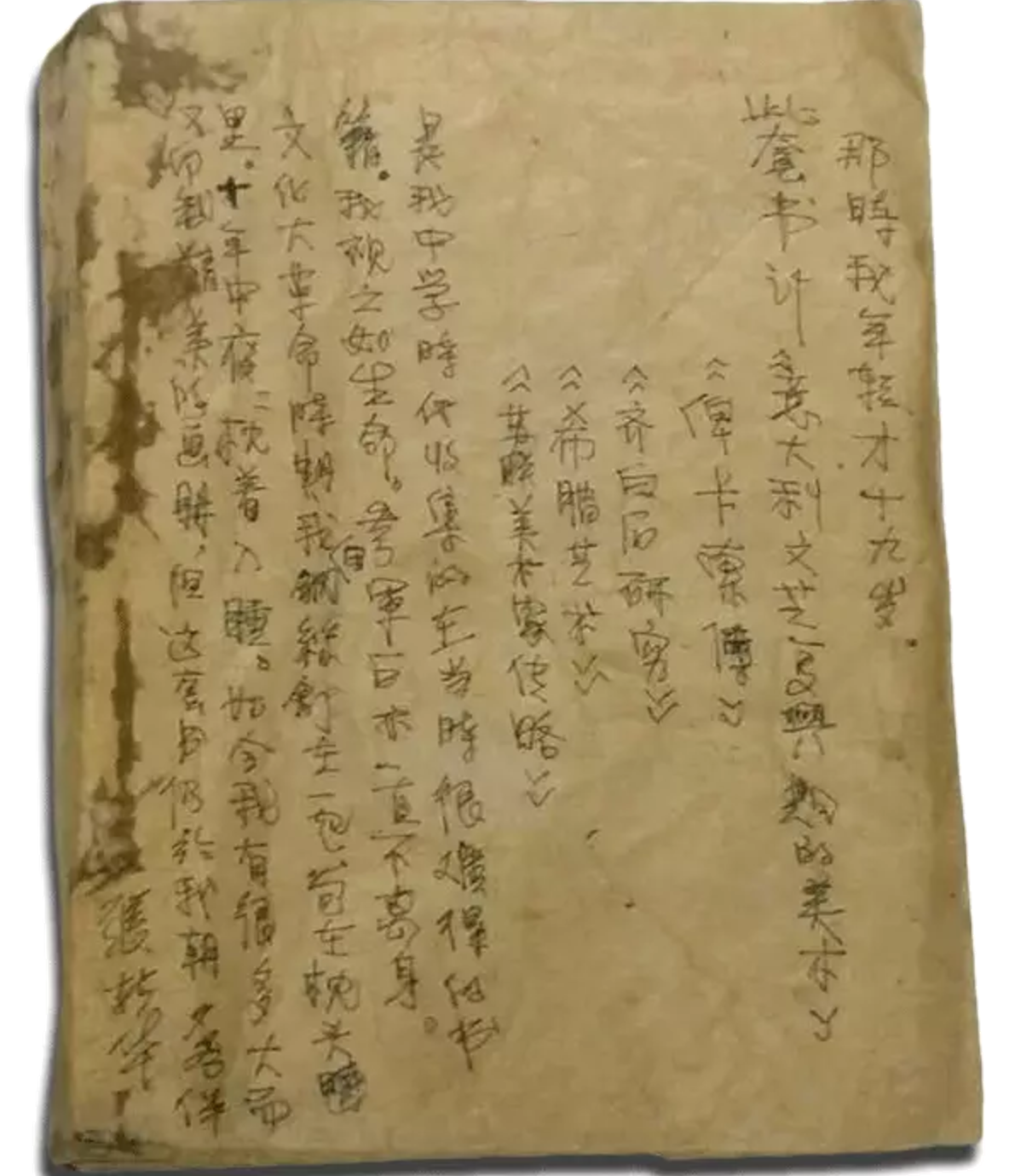 hen he was closing the door would he say to us: “We are about to close, you students can come back tomorrow.” Young people always have dreams, and reading second-hand books was a way to chase one’s dreams. You always found good books you thought worth reading, including some out-of-print rare editions at an extremely low price. I had bought a whole set of The Story of the Stone with illustration for only 4 bucks. The 1947 four-volume edition of Jean-Christophe was only 5.5. There were also Poems by Heine, The Collected Works of Pushkin, and other poems and paintings.
hen he was closing the door would he say to us: “We are about to close, you students can come back tomorrow.” Young people always have dreams, and reading second-hand books was a way to chase one’s dreams. You always found good books you thought worth reading, including some out-of-print rare editions at an extremely low price. I had bought a whole set of The Story of the Stone with illustration for only 4 bucks. The 1947 four-volume edition of Jean-Christophe was only 5.5. There were also Poems by Heine, The Collected Works of Pushkin, and other poems and paintings.
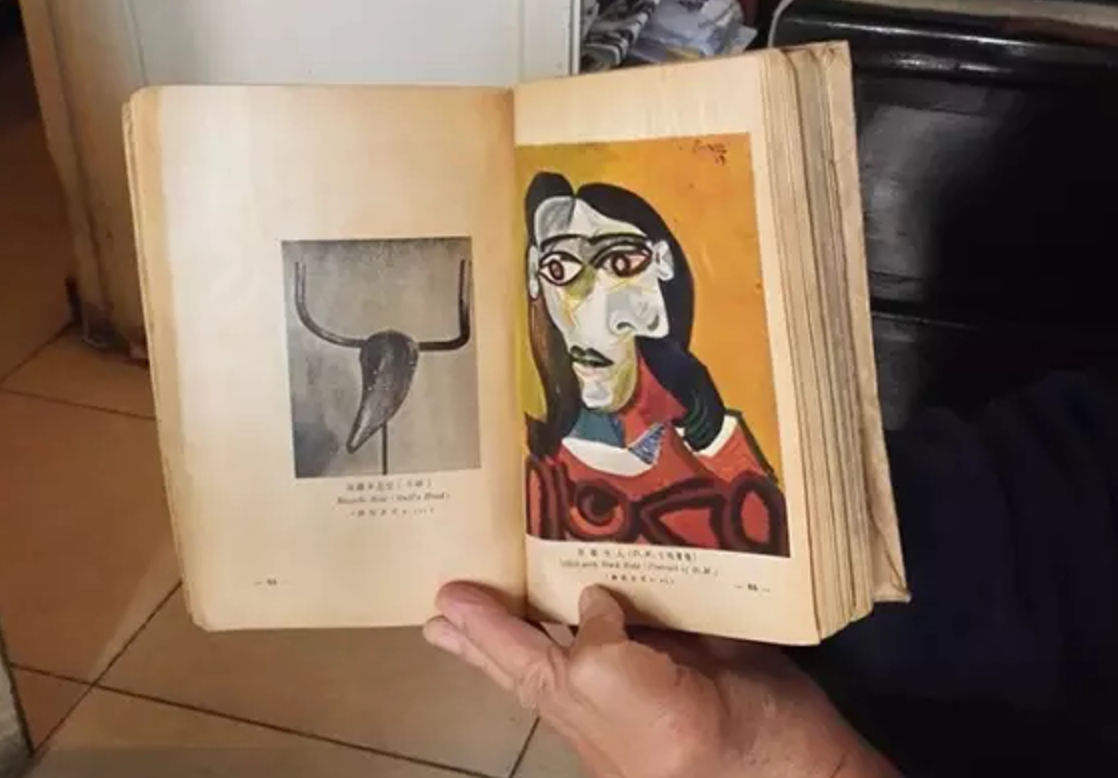 When I joined the PLA (People’s Liberation Army) I left two boxes of books in my home. I only took with me Maxim Gorky’s My Childhood, My Apprenticeship, and My University. I used steel wires to bind the books into two volumes wrapped in paper from cement bags and hid them in my backpack, which I used as a pillow every night and carried with me on long marches. The bound volumes had kept me company throughout the ten years of the Cultural Revolution. Even when I could not read them, I still felt peaceful when sleeping day in and day out with these books for over ten years, for in them there were my hopes and dreams. Now I have lots of art books with elegant hard-cover and other books, but I still would not part company with this set that I cherish everyday as my treasures.
When I joined the PLA (People’s Liberation Army) I left two boxes of books in my home. I only took with me Maxim Gorky’s My Childhood, My Apprenticeship, and My University. I used steel wires to bind the books into two volumes wrapped in paper from cement bags and hid them in my backpack, which I used as a pillow every night and carried with me on long marches. The bound volumes had kept me company throughout the ten years of the Cultural Revolution. Even when I could not read them, I still felt peaceful when sleeping day in and day out with these books for over ten years, for in them there were my hopes and dreams. Now I have lots of art books with elegant hard-cover and other books, but I still would not part company with this set that I cherish everyday as my treasures.
